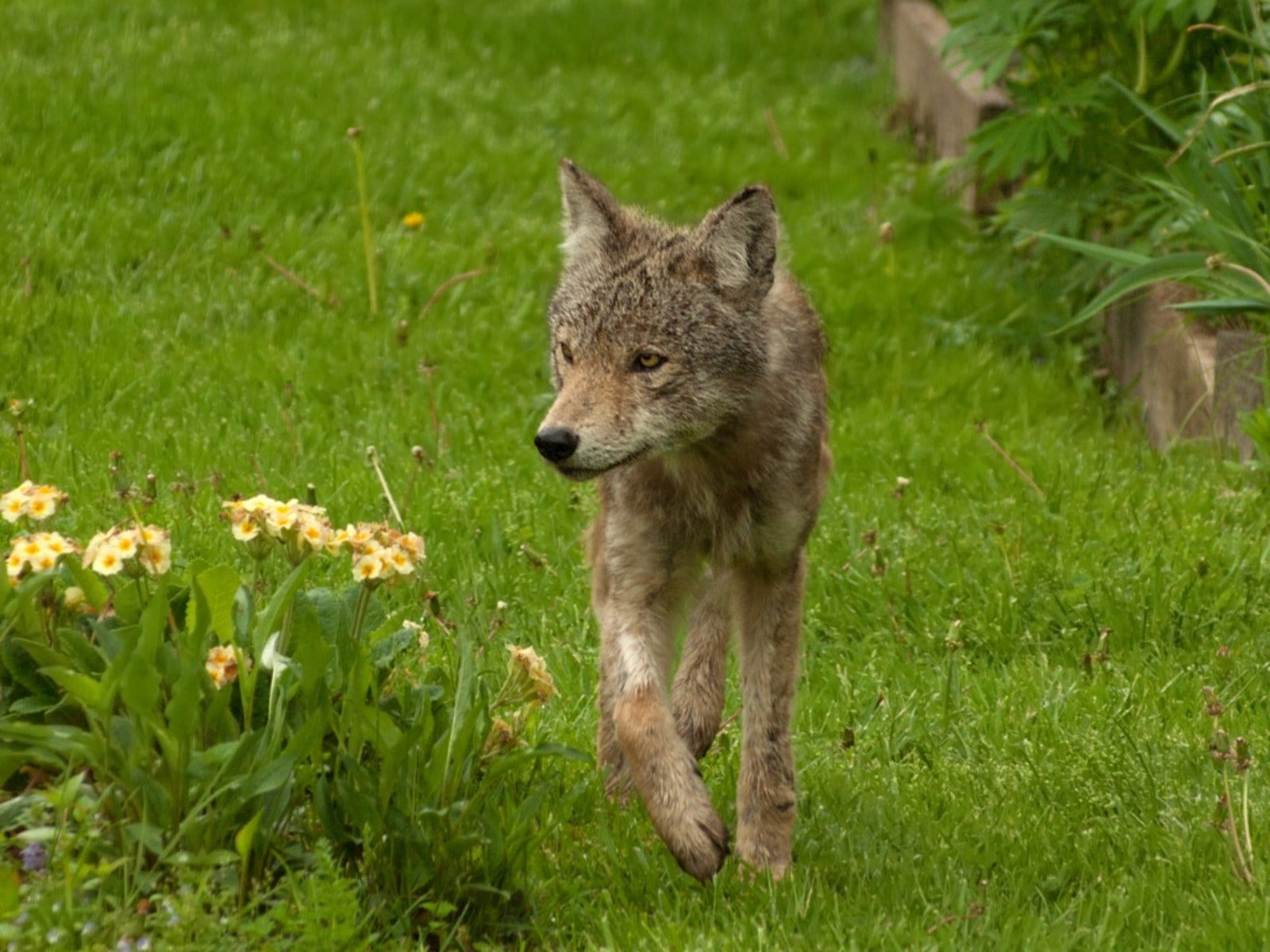Are Coyotes Dangerous – What To Do About Coyotes In The Garden


Coyotes generally prefer to avoid contact with humans, but as their habitat shrinks and they become more accustomed to people, they can sometimes become unwelcome visitors to the garden. Read on to learn more about coyote control and what to do about coyotes in the garden.
Are Coyotes Dangerous?
Although the wily canines may occasionally dine on juicy vegetables or fruits (especially melons), they depend primarily on rats and other rodents and are extremely effective at keeping destructive, disease-causing vermin under control. Since they are such important members of the ecosystem, coyotes should be appreciated more than feared. However, it’s sometimes necessary to devise ways of controlling coyotes that venture too near the home and garden.
Coyotes tend to be shy creatures, but like most wild animals, they can be dangerous and shouldn’t be approached. Coyotes are especially aggressive and active when they’re hunting for food and when they’re protecting their offspring.
Coyotes can be dangerous to cats and small dogs, but coyote attacks on humans, which generally involve very young children, are extremely rare. Arizona Cooperative Extension notes that domestic dogs post a much greater threat.
Should you Kill Coyotes?
Absolutely not. If coyotes are causing damage in your garden, or if you are aware of coyotes acting aggressively, don’t take matters into your own hands. Report the matter to your state’s department of fish and wildlife or your local cooperative extension office.
Controlling Coyotes in the Garden
So, what to do about coyotes hanging around your garden and surrounding landscape? If you’re serious about controlling coyotes, you can build a fence of concrete blocks, wire, brick, or solid wood, with a buried apron that extends 4 to 6 inches (10-15 cm.) into the ground and away from the fence at least 15 to 20 inches (38-51 cm.) to prevent digging under. A coyote-proof fence must be at least 5 ½ feet (2 m.) tall.
The following steps will minimize coyote activity in your garden:
Gardening tips, videos, info and more delivered right to your inbox!
Sign up for the Gardening Know How newsletter today and receive a free copy of our e-book "How to Grow Delicious Tomatoes".
- Control rodents around your home and garden. Also, keep weedy areas and tall grass mowed, which will help control rodents that attract coyotes to your garden.
- Confine pets and backyard poultry after dark. Remove pet food dishes from your garden at night as well and always keep pet food containers indoors or ensure they are tightly sealed.
- Bring garbage cans indoors at night or ensure that the containers have secure covers.
- Never leave food or water available for a coyote, either intentionally or unintentionally. Doing so will cause them to lose their natural fear of people. With that in mind, pick up any windfall fruit and harvest vegetables when they are ripe.
- Bright lights may (or may not) discourage coyotes.

A Credentialed Garden Writer, Mary H. Dyer was with Gardening Know How in the very beginning, publishing articles as early as 2007.
-
 Looking For Plants To Give You The Soft And Fuzzies? Try These 5 Fuzzy Leaf Plant Options
Looking For Plants To Give You The Soft And Fuzzies? Try These 5 Fuzzy Leaf Plant OptionsLovers of texture, drama, silver foliage and tactile plants will adore these special sensory garden additions. These fuzzy leaf plant options will leave you all aglow
By Susan Albert
-
 Get Ready For A Summer Of Hummers! Grow These Full Sun Hummingbird Plants and Flowers
Get Ready For A Summer Of Hummers! Grow These Full Sun Hummingbird Plants and FlowersIf you’re lucky enough to enjoy a sunny backyard, make sure you are maxing out on your pollinator opportunities and grow these full sun hummingbird plants and flowers
By Tonya Barnett